The views expressed in our content reflect individual perspectives and do not represent the official views of the Baha'i Faith.
Have you heard the phrase “Indigenous land acknowledgment?” It comes from a traditional Indian custom that recognizes Indigenous peoples as the original stewards of the land we stand on today.
As an example, here’s the Indigenous land acknowledgment the U.S. Smithsonian National Museum of the American Indian now uses before each public event and important gathering:
We gratefully acknowledge the Native Peoples on whose ancestral homelands we gather, as well as the diverse and vibrant Native communities who make their home here today.
In today’s article in our ongoing series on Indigenous messengers of God, author Chris Buck and Lakota Baha’i Kevin Locke delve into the reasons for Indigenous land acknowledgment – and the profound spiritual implications of such a practice.
RELATED: Why We Need to Learn About Native American Prophets
These kinds of acknowledgments are becoming more common across many contemporary cultures. Increasingly they reflect the advice the Baha’i teachings gave to those in the global West more than a hundred years ago, when Abdu’l-Baha advised everyone to “Attach great importance to the indigenous population of America” in his Tablets of the Divine Plan. He wrote “… there can be no doubt that they will become so illumined as to enlighten the whole world.”
Q: Kevin, we’ve talked about the importance of Indigenous land acknowledgment, a more and more widespread practice worldwide. We also agreed that Indigenous spiritual acknowledgment is another kind of recognition, or worthy tribute, that would be good for individuals and institutions to consider doing as well. Let’s take your birthplace, Los Angeles, as an example.
Would you please elaborate, especially by commenting on the Tongva people, and also the archaeological discovery that you just told me about? See: Jenny Hamel, “LA’s Tongva descendants: ‘We originated here’” (July 17, 2018), and “New Evidence for Human Activity in North America 130,000 Years Ago” (April 16, 2021)
A: Of course, Chris. Although I was born in California, since 1959 I have not spent much time there. So I am not much attached to that particular place personally. All the more so, especially after learning of the brutal, post-Euro-American contact history of the region. For an Indigenous person like me, it feels quite embarrassing to be associated with California, due to its shameful history of conquest, colonization, enslavement, and forced conversion of the Indigenous populations to Christianity, along with the demonization of traditional Indigenous spiritual traditions.
Now that I am becoming aware of the research, which indicates 130,000 years of human habitation of the area, this, combined with the fact that one of the most linguistically diverse and pre-Euro-American densely populated regions of the planet with little to no indication of large-scale hostilities or conflict, causes me to be awestruck that nothing short of the direct hand of God could have created such an earthly human paradise for so many millennia, prior to Euro-American “contact.”
This awareness lifts me to a new plateau of appreciation of the Indigenous spiritual heritage of this land we now call California. So it makes perfect sense to acknowledge the Tongva people and their spiritual heritage and legacy with respect to the greater Los Angeles area. Which reminds me – Abdu’l-Baha revealed a beautiful prayer for the Western part of the North American continent:
O God! O God! This is a broken-winged bird and his flight is very slow – assist him so that he may fly toward the apex of prosperity and salvation, wing his way with the utmost joy and happiness throughout the illimitable space, raise his melody in Thy Supreme Name in all the regions, exhilarate the ears with this call, and brighten the eyes by beholding the signs of guidance.
O Lord! I am single, alone and lowly. For me there is no support save Thee, no helper except Thee and no sustainer beside Thee. Confirm me in Thy service, assist me with the cohorts of Thy angels, make me victorious in the promotion of Thy Word and suffer me to speak out Thy wisdom amongst Thy creatures. Verily, Thou art the helper of the weak and the defender of the little ones, and verily Thou art the Powerful, the Mighty and the Unconstrained.
Q: This topic originally came up when I asked you about some research I was doing about Los Angeles, where the original tribal inhabitants, the Tongva people lived and are still living today. The Tongva people followed an Indigenous messenger of God, known as Chinigchinich (or Chinigchinix), who appeared long ago, and about whom Baha’i author and naturalist Vinson Brown wrote in Voices of Earth and Sky: The Vision Life of the Native Americans.
Here is a summary of an early narrative I came across in the course of my research, from Chinigchinich (an account of the natives in the area of the San Juan Capistrano mission, written in 1826), by Friar Gerónimo Boscana, an early Franciscan missionary:
After concluding the functions and ceremonies of the burial of their Chief Oiot, that is, after having burned him, they all assembled for a great council, at which they discussed in what way they could have wild seeds to eat, such as acorns, Wild Amaranth, chia, etc., and also game such as deer, cottontail rabbits, jackrabbits, quails, ground-squirrels, rats, etc. While all were at the above mentioned meeting, they saw on various days and many times one like a phantom, different from themselves, who kept appearing to them and disappearing, sometimes in one direction, sometimes in another, and finding themselves in suspense and fear at what they were seeing, they decided to call him to them. They called him, he came to them and they asked him if he was their Chief Ouiot [sic]. “I am not Chief Oiot [sic],” he answered them, “but a greater chief, and I am called Chinigchinix.” They asked him where he lived, and he answered: “My habitation is above.” He asked them what matter they were discussing at the meeting and why they were all gathered there. They answered him that it being that their Chief Oiot had died, they were discussing how they could support themselves with wild seeds and game, and not have to subsist any longer on the clay that they were eating.
In consideration of these motives Chinigchinix answered them and told them: “I make all things, and I shall create people for you people, distinct from yourselves, whom you soon shall see. And now, from this moment on I give unto you power and faculty, to each one of you, that one shall make it rain, that another shall make the weather clear up, that another shall produce acorns, that another shall produce chia, that another shall produce Wild Amaranth, etc.; likewise that another shall produce cottontail rabbits, that another shall produce ducks, that another shall produce geese, that another shall produce deer, etc. To each one he gave the power, now to produce seeds, now animals, of the kind that they eat. And still at the present time, those who pretend to be their descendants, claim to have this power, and the [other] Indians consult them …
This Chinigchinix, whom from that time on they considered as God, the Indians say had no father or mother, and all are ignorant of his origin. …
They believed that the God Chinigchinix was everywhere present, that he saw everything, though it were dark night, but that no one could see him; that he was a friend of the good and punished the wicked much. This God Chinigchinix has three distinct names, namely: Saor, Quoar, and Tobet. Each name has its own meaning, for Saor signifies or means the time when the said Chinigchinix did not yet know how to dance. Quoar when he already knew how to dance. And Tobet when he danced wearing a little skirt or apron of feathers, adorned with feathers like a crown on his head, and painted up. And they say that this Chinigchinix went away dancing to Heaven. And this kind of dress their God Chinigchinix commanded them to use in their feasts, and they use it in the special dances of their great feasts.
RELATED: Recognizing and Respecting Indigenous Messengers of God
This account is quoted at length as our earliest known information on Chinigchinich. Given this information, how would you recommend that an Indigenous land and spiritual acknowledgment of the land of your birthplace, Los Angeles, be offered in a long overdue recognition of the Tongva people — and in spiritual recognition of Chinigchinich, their Indigenous messenger of God?
A: Yes, of course, I heartily recommend an Indigenous land and spiritual acknowledgment of the land of one’s birthplace. As for Los Angeles, my own birthplace, I also agree that recognition of the Tongva people and acknowledgment of their sacred lands — and spiritual recognition of Chinigchinich, their Indigenous Messenger of God — is a good example. Even though the accounts of Chinigchinich are second-hand and may have been misunderstood or altered, the historical reality of peace, unity and all of the heavenly qualities we learn of the Indigenous Californians indicate the heavenly power of this and other divine souls. Perhaps more research will reveal a fuller picture of this heavenly legacy? In the meantime we must acknowledge and appreciate the reality that the breath of God has been wafted over this region since time immemorial.
Q: Thanks, Kevin! This example of Los Angeles, the Tongva people, and Chinigchinich, their Indigenous messenger of God, will no doubt illustrate how worthy the practice of Indigenous land and spiritual acknowledgment can be.


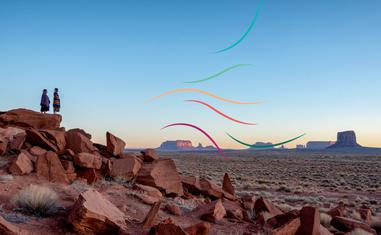

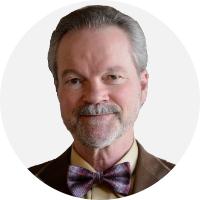
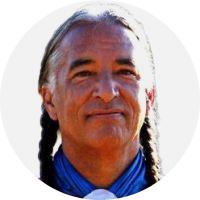
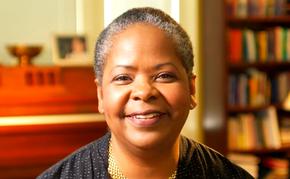
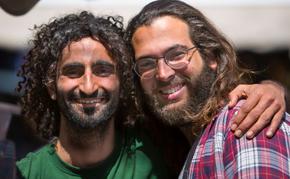
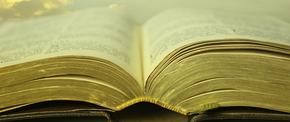





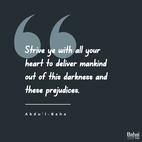
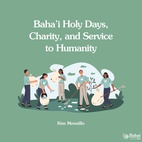


Comments
Sign in or create an account
Continue with Facebookor